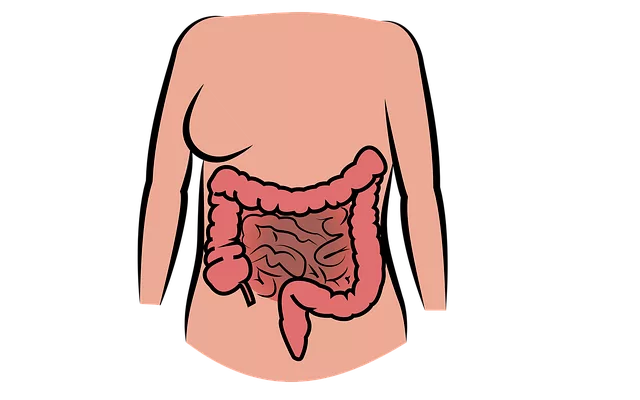The Endocannabinoid System (ECS) is a complex, naturally occurring network in our bodies that regulates balance across various physiological systems including pain, mood, appetite, memory and immune function. Discovered in the late 1990s through cannabis research, the ECS has since been found to utilize endocannabinoids like anandamide and 2-AG for signaling pathways. Understanding the ECS is key to appreciating its role in maintaining homeostasis and its potential as a therapeutic target for numerous health conditions. Imbalances in the ECS can lead to issues like stress, anxiety, chronic pain, cognitive impairment, altered appetite and sleep disturbances. Supportive lifestyle factors such as nutrition (omega-3s, turmeric, ginger), exercise, and mindfulness are crucial for maintaining ECS balance and promoting overall well-being. Future holistic healthcare will leverage ECS understanding for personalized wellness solutions.
The Endocannabinoid System (ECS) is a complex network that plays a crucial role in maintaining physical and mental health. This intricate system, composed of endocannabinoids, receptors, and enzymes, regulates various physiological processes. By understanding the ECS, we gain insights into our body’s natural balance. This article delves into the workings of the ECS, exploring its significance in homeostasis and how disruptions can impact overall well-being. We also uncover natural ways to support this vital system.
Unveiling the Endocannabinoid System: A Complex Network

The Endocannabinoid System (ECS) is a complex network of cell receptors and endocannabinoids, which are natural compounds produced by our bodies. It plays a pivotal role in maintaining balance across various physiological systems, including pain perception, mood, appetite, memory, and immune function. Understanding the ECS is crucial to appreciating how it helps regulate homeostasis—the body’s internal balance.
This intricate system was only beginning to be understood in the late 1990s, when researchers discovered that cannabis interacts with our bodies through these receptors. Since then, extensive research has revealed a vast network of signaling pathways, with endocannabinoids like anandamide and 2-AG binding to specific receptors to modulate various bodily functions. This discovery has not only enhanced our understanding of homeostasis but also opened doors to potential therapeutic interventions for numerous health conditions.
The Role of Cannabinoids in Regulating Homeostasis

The Endocannabinoid System (ECS) is a complex network that plays a pivotal role in maintaining balance, or homeostasis, within our bodies. It acts as a regulator for various physiological processes, ensuring they function optimally and harmoniously. At its core, the ECS involves endocannabinoids, which are endogenous molecules produced by our bodies, and their receptors, CB1 and CB2. These endocannabinoids bind to these receptors, initiating a series of responses that maintain internal equilibrium.
Cannabinoids, including those found in cannabis plants, interact with the ECS by mimicking or enhancing the effects of these natural endocannabinoids. This interaction can help regulate processes such as mood, memory, appetite, pain perception, and immune function. For instance, THC (tetrahydrocannabinol), one of the primary psychoactive compounds in cannabis, binds to CB1 receptors in the brain, influencing pleasure, reward, and cognitive functions. Conversely, CBD (cannabidiol) interacts with other non-psychoactive receptors, potentially reducing anxiety and pain without inducing a ‘high’. Understanding the ECS and its modulation by cannabinoids is crucial for appreciating their potential therapeutic applications.
Balancing Act: How ECS Maintains Physical and Mental Health

In our fast-paced world, maintaining a balance between physical and mental well-being is an ongoing challenge. This is where the Endocannabinoid System (ECS) steps in as a key player in regulating various physiological processes that contribute to homeostasis – the body’s natural state of equilibrium. Understanding the ECS is crucial in appreciating how it helps us navigate life’s ups and downs, from managing stress and anxiety to moderating inflammation and pain perception.
The ECS is a complex network of endocannabinoids (natural chemicals produced by our bodies), receptors, and enzymes. It influences everything from appetite and sleep cycles to immune function and mood. By interacting with this system, the body maintains stability, ensuring that we can effectively respond to internal and external stimuli without becoming overwhelmed. In essence, the ECS acts as a regulator, keeping us in check and helping us stay balanced – both physically and mentally.
Disruptions in the ECS: Potential Causes and Consequences

Disruptions in the Endocannabinoid System (ECS) can have significant implications for overall balance and well-being. The ECS, a complex signaling system within our bodies, plays a crucial role in regulating various physiological processes such as mood, memory, pain sensation, appetite, and sleep. Understanding the endocannabinoid system is essential to appreciating how disruptions can lead to imbalances.
Potential causes of ECS disruption include chronic stress, poor diet, lack of physical activity, and exposure to toxins. These factors can interfere with the production and functionality of endocannabinoids, the body’s natural chemicals that interact with the ECS. Consequences of ECS disruption may include heightened anxiety, chronic pain, impaired cognitive function, altered appetite regulation, and sleep disturbances—all of which contribute to a sense of imbalance in various aspects of life.
Exploring Natural Ways to Support a Healthy Endocannabinoid System

The Endocannabinoid System (ECS) is a complex physiological system that plays a crucial role in maintaining balance within our bodies. Often referred to as the “body’s own cannabis system,” it was only recently discovered, yet its implications for overall health and well-being are profound. Understanding the ECS involves recognizing its key functions: regulating mood, appetite, pain perception, memory, and sleep patterns. Imbalances in this system have been linked to various conditions, from chronic pain and anxiety to sleep disorders.
Natural ways to support a healthy ECS include incorporating specific nutrients like omega-3 fatty acids, which are essential for producing endocannabinoids, the body’s natural cannabis-like compounds. Certain herbs and spices, such as turmeric and ginger, have also been shown to interact with the ECS, offering anti-inflammatory properties that can aid in regulating pain. Additionally, regular exercise stimulates the release of endorphins and promotes the production of endocannabinoids, contributing to a more balanced ECS and improved overall health.
Future Insights: Understanding and Optimizing ECS for Well-being

The future of well-being lies in unlocking the full potential of the Endocannabinoid System (ECS). As our understanding of this intricate system deepens, we’re poised to revolutionize holistic health practices. By delving into the latest research on the ECS, we can develop targeted strategies that support balance and homeostasis, ultimately enhancing quality of life.
Optimizing the ECS offers a promising avenue for managing various physiological processes, from stress response and mood regulation to pain perception and inflammation. Understanding how cannabis-like compounds within our bodies interact with specific receptors could lead to personalized wellness solutions. This involves exploring novel therapies, dietary interventions, and even innovative product formulations designed to nurture a thriving ECS, paving the way for a more proactive and preventive approach to overall health.
